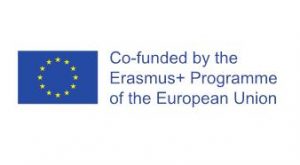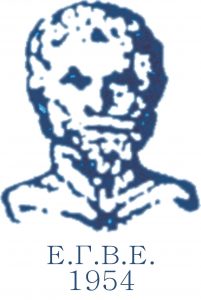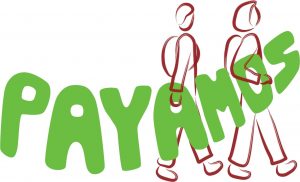PAYAMOS
PAYAMOS
Promotion of Physical Activity of the Youth through Active Mobility to School (PAYAMOS)
(Project Number: 613171-EPP-1-2019-1-DE-SPO-SCP)
The collaborative partnership «PAYAMOS» aims at encouraging children and adolescents to have higher levels of physical activity through active transportation to school, promote voluntary physical activity in them, and provide better knowledge for making physical-activity-friendly policies. This collaboration is a continuation of a previous ERASMUS+ project active in 2016-2017. One of the work packages of the previous project focused on the interactions between urban form, mobility patterns and perceptions of parents, active transportation to school of children, and children’s physical activity levels and their body mass index. The work done by collecting data of elementary school children of 9-12 years of age and their parents in 21 schools in 7 countries in the first half of 2016. The present project is meant to collect data based on the same questionnaire adopted in 2016 to find possible negative or positive changes in children’s physical activity, their body weight, and the relations with urban form and mobility after four years. Another part of the new project will be working on the effects of changing mobility behaviors of adolescents in new schools of the seven countries on their body weight and composition. The idea is that a survey is done in a secondary school aiming at collecting data about different mobility, socioeconomics, and spatial factors as well as the body weight and composition of adolescents at the first months of the project. The findings will be analyzed and deliverables will be produced. During the survey, the respondents will be asked if they agree to change their school commuting habit from private car of their parents to walking, biking, and public transport (a survey panel is established). Thus, two sub-samples will be made: those students who do not change their mobility mode and those that change their mode. Then in another work package, the two sub-samples will be interviewed and their body characteristics are collected. Statistical analysis will show if changing the school mobility from car to active modes and public transport use has had significant changes in adolescents. Comparative analyses will be done between boys and girls as well as between different modes of school commuting like walking, biking, walking + public transport, biking + public transport. The findings will be explained and summarized for policy making in a separate work package. This work will show what the scientific and empirical results mean for the European policy making.
For having a more precise understanding about the subjects of the previous study called Multisport Against Physical Sedentary (M.A.P.S.), reading the following outputs will be helpful.
Project website (please look at WP4): http://www.maps-project.eu/overview-of-all-activities,
| Pn | Organisation | City | Country | Role |
| 1 | Technische Universität Berlin, Germany | BERLIN | GERMANY | Applicant |
| 2 | ERASMUS CENTRE FOR URBAN, PORT AND TRANSPORT ECONOMICS BV | ROTTERDAM | NETHERLANDS | Partner |
| 3 | POLITECHNIKA KRAKOWSKA | KRAKOW | POLAND | Partner |
| 4 | Northern Greece Physical Education Teachers Association (EGVE) | THESSALONIKI | GREECE | Partner |
| 5 | MINE VAGANTI NGO | PERFUGAS | ITALY | Partner |
| 6 | RIJEKA SPORTS ASSOCIATION FOR PERSONS WITH DISABILITIES | RIJEKA | CROATIA | Partner |
| 7 | Spor Elcileri Dernegi | YESILYURT | TURKEY | Partner |
Peer-reviewed journal papers
- Masoumi, Houshmand E., Zanoli, Gabriele; Papageorgiou, Athanasios; Smaga, Soultana; Miloš, Ana; Van Rooijen, Martin; Łuczak, Monika; Komorek, Joanna; Çağan, Birol (2017), “Patterns of Children’s Travel to School and their Body Weight: A Survey on Nine European Cities”. GeoScape, Vol. 11, Issue 2, pp. 52-75. Doi: https://doi.org/10.1515/geosc-2017-0005
- Masoumi, Houshmand, E.(2017), “Associations of Built Environment and Children’s Physical Activity: A Narrative Review”, Reviews on Environmental Health, Vol. 32, Issue 4, pp. 1-16. https://doi.org/10.1515/reveh-2016-0046
- Masoumi, Houshmand, E.(2017), “Active Transport to School and Children’s BMI: A Systematic Review”, Journal of Land Use, Mobility and Environment, Vol. 10, No. 1, pp. 95-110. doi: http://dx.doi.org/10.6092/1970-9870/4088
Reports
- Masoumi, Houshmand, E., Zanoli, Gabriele; Papageorgiou, Athanasios; Smaga, Soultana; Miloš, Ana; Van Rooijen, Martin; Łuczak, Monika; Komorek, Joanna; Çağan, Birol; Calabrese, Carla; E. Jamerson, Gordon; Patsakas, Georgios; Parisopoulos, Georgios; Meimaridis, Ioannis; Anagnostaras, Konstantinos; Perrostis, Andreas; Dessi, Eleni; Družeta, Toni; Udović, Tatjana; Daams, Ingmar; Drużek, Paweł and Dalcı, Ahmet (2017), Children’s Travel to School and their Body Weight; Results of a Survey in Seven European Countries: General Report”, Report No. 2 of WP4 of the Project Multisport Against Physical Sedentary (M.A.P.S.), Funded by the European Commission, 73 pages. doi: 10.13140/RG.2.2.35796.40327
- Masoumi, Houshmand, E.; Zanoli, Gabriele; Papageorgiou, Athanasios; Smaga, Soultana; Miloš, Ana; Van Rooijen, Martin; Łuczak, Monika; Komorek, Joanna; Çağan, Birol; Calabrese, Carla; E. Jamerson, Gordon; Patsakas, Georgios; Parisopoulos, Georgios; Meimaridis, Ioannis; Anagnostaras, Konstantinos; Perrostis, Andreas; Dessi, Eleni; Družeta, Toni; Udović, Tatjana; Daams, Ingmar; Drużek, Paweł and Dalcı, Ahmet (2017), Children’s Travel to School and their Body Weight; Results of a Survey in Seven European Countries: Technical Report”, Report No. 3 of WP4 of the Project Multisport Against Physical Sedentary (M.A.P.S.), Funded by the European Commission, 319 pages. doi: 10.13140/RG.2.2.18865.17767
- Masoumi, Houshmand, E., Gouda, Amr, Ah., Layritz, Lucia, Stendera, Pia, Matta, Cynthia, Tabbakh, Haya, Razavi, Sima, Masoumi, Houshiar, Mannasoğlu, Betül, Kılınç, Özlem, Sharara, Ashraf M., Mahmoud, ElNably, Alhakeem, Ahmad, Ismail, Sherzad, Fruth, Erik (2018), Urban Travel Behavior in Large Cities of MENA Region: Survey Results of Cairo, Istanbul, Discussion Paper- Center for Technology and Society discussion paper series, paper Nr. 41/2018, DOI: 10.13140/RG.2.2.10912.48641
- Masoumi, Houshmand, E. (2017), Promoting Schoolchildren’s Physical Activity by Change in Transport to School Behavior: Statistical Analysis, Report No. 4 of WP4 of the Project Multisport Against Physical Sedentary (M.A.P.S.), Funded by the European Commission, 26 pages. Doi:10.13140/RG.2.2.26758.88642











